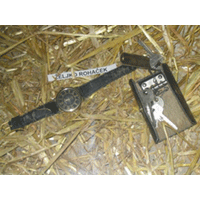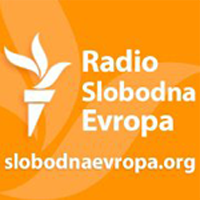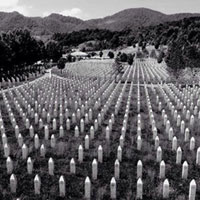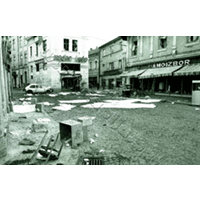(srpski) Anonimizacija čini žrtve nevidljivim za javnost

Sorry, this entry is only available in srpski.


Sorry, this entry is only available in srpski.

 The report by the Humanitarian Law Center (HLC) analyzes how are the existing mechanisms for public access to trials for war crimes applied and recommends necessary changes in the legislative framework and practice.
The report by the Humanitarian Law Center (HLC) analyzes how are the existing mechanisms for public access to trials for war crimes applied and recommends necessary changes in the legislative framework and practice.
The public’s right to know about the war crimes trials, as a minimum, includes the right to access the courtroom where trials are held and documentation of war crimes cases (indictments, judgements, transcripts and audio/video records of main hearings); the right to record a trial for the purpose of public presentation and the right to keep court records from war crimes cases. Out of the stated rights, only the right to access the courtroom and monitor the trial is strictly adhered to in Serbia and, therefore, it is not specifically analyzed in the Report. The public’s right to access relevant documents from war crimes trials is limited in practice by the refusal of courts to deliver judgments from proceedings that are not final and by excessive anonymisation of data.
The report is based on several years of practice of the HLC, that monitors national war crimes trials from the start, obtains relevant court documents and reports about them to the public.
The report “Public’s Right to Know of War Crimes Trials in Serbia” is available here.

 November 20th 2016 marks the 25th anniversary of the crime committed at „Ovčara“ farm near Vukovar, when members of the local territorial defense unit (Teritorijalna odbrana – TO) and Serb volunteers under the command of the Yugoslav People’s Army (JNA) killed 265 Croatian civilians and prisoners of war. The Humanitarian Law Center (HLC) on this occasion would like to remind the public that the trial of this case before the domestic courts has not yet been finally completed, even after more than 12 years.
November 20th 2016 marks the 25th anniversary of the crime committed at „Ovčara“ farm near Vukovar, when members of the local territorial defense unit (Teritorijalna odbrana – TO) and Serb volunteers under the command of the Yugoslav People’s Army (JNA) killed 265 Croatian civilians and prisoners of war. The Humanitarian Law Center (HLC) on this occasion would like to remind the public that the trial of this case before the domestic courts has not yet been finally completed, even after more than 12 years.

Sorry, this entry is only available in srpski.

 On 15 November 2016, the National Assembly of the Republic of Serbia opened the debate on the Bill on Amendments to the Criminal Code, which prohibits public approval and denial of genocide, crimes against humanity and war crimes, but only if those offenses have been established by the final judgment of a court in Serbia or the International Criminal Court. This would provide legal protection to revisionists of facts which have been established before the International Criminal Tribunal for the former Yugoslavia (ICTY) and the International Court of Justice (ICJ). The Humanitarian Law Center (HLC) calls upon the Members of the National Assembly to amend the proposed bill so that it includes a ban on the denial of facts established by the ICTY and the ICJ, in accordance with the domestic and international legal obligations of the Republic of Serbia.
On 15 November 2016, the National Assembly of the Republic of Serbia opened the debate on the Bill on Amendments to the Criminal Code, which prohibits public approval and denial of genocide, crimes against humanity and war crimes, but only if those offenses have been established by the final judgment of a court in Serbia or the International Criminal Court. This would provide legal protection to revisionists of facts which have been established before the International Criminal Tribunal for the former Yugoslavia (ICTY) and the International Court of Justice (ICJ). The Humanitarian Law Center (HLC) calls upon the Members of the National Assembly to amend the proposed bill so that it includes a ban on the denial of facts established by the ICTY and the ICJ, in accordance with the domestic and international legal obligations of the Republic of Serbia.

 The War Crimes Department of the Higher Court in Belgrade has been conducting proceedings for the recognition and execution of the final judgment passed by the Court of Bosnia and Herzegovina (BiH), by which Novak Đukić was sentenced to 20 years’ imprisonment for a war crime against a civilian population, which he committed by ordering an artillery strike on the Tuzla downtown area known as Kapija on 25 May 1995. At the same time, Đukić’s defence team has been waging a campaign in Serbia to publicly prove Đukić’s supposed innocence. In an effort to deny the facts established in the final judgment against Đukić, his defence team is using the results of an experiment conducted at the training grounds of the Army of Serbia in Nikinci, near Ruma. On the basis of this out-of-court experiment conducted by experts hired by Đukić himself, it was concluded that Đukić and the Army of Republika Srpska (VRS) are not to be held responsible for the massacre of civilians in Tuzla.
The War Crimes Department of the Higher Court in Belgrade has been conducting proceedings for the recognition and execution of the final judgment passed by the Court of Bosnia and Herzegovina (BiH), by which Novak Đukić was sentenced to 20 years’ imprisonment for a war crime against a civilian population, which he committed by ordering an artillery strike on the Tuzla downtown area known as Kapija on 25 May 1995. At the same time, Đukić’s defence team has been waging a campaign in Serbia to publicly prove Đukić’s supposed innocence. In an effort to deny the facts established in the final judgment against Đukić, his defence team is using the results of an experiment conducted at the training grounds of the Army of Serbia in Nikinci, near Ruma. On the basis of this out-of-court experiment conducted by experts hired by Đukić himself, it was concluded that Đukić and the Army of Republika Srpska (VRS) are not to be held responsible for the massacre of civilians in Tuzla.
The Humanitarian Law Center (HLC) considers that the War Crimes Department of the Higher Court in Belgrade must not take into consideration the results of the abovementioned experiment, and urges it to comply promptly with the Court of BiH’s request, counter the obstructions of Đukić’s defence team and thus demonstrate, through its actions, its true commitment to regional cooperation in prosecuting war crimes. Additionally, the HLC urges the domestic authorities, especially the Army of Serbia, to stop supporting efforts aimed at denying judicially established facts and at negationist revisions of the recent wartime past.

Sorry, this entry is only available in srpski.

Sorry, this entry is only available in srpski.

Sorry, this entry is only available in srpski.